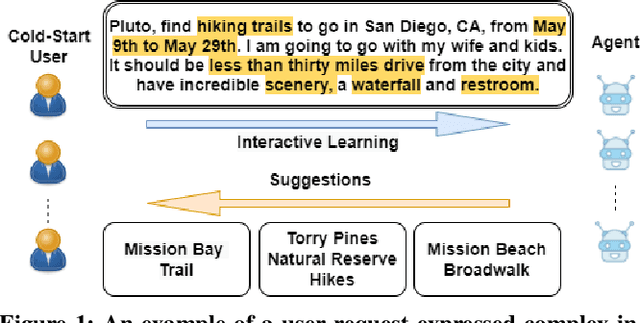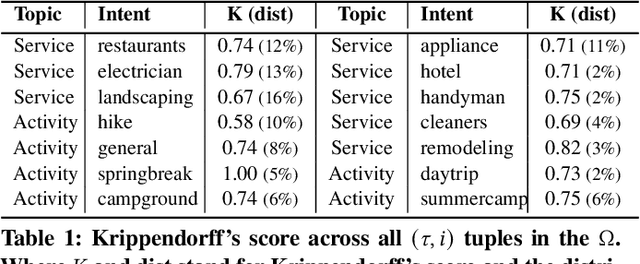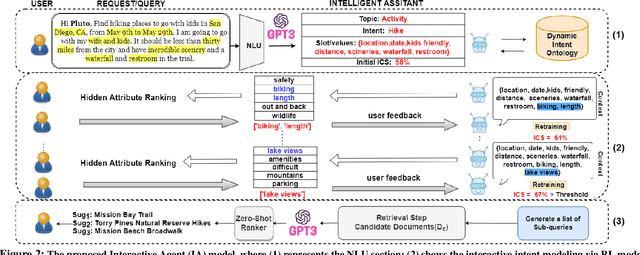Patricio Figueroa Sanz
Improving Grounded Language Understanding in a Collaborative Environment by Interacting with Agents Through Help Feedback
Apr 21, 2023



Abstract:Many approaches to Natural Language Processing (NLP) tasks often treat them as single-step problems, where an agent receives an instruction, executes it, and is evaluated based on the final outcome. However, human language is inherently interactive, as evidenced by the back-and-forth nature of human conversations. In light of this, we posit that human-AI collaboration should also be interactive, with humans monitoring the work of AI agents and providing feedback that the agent can understand and utilize. Further, the AI agent should be able to detect when it needs additional information and proactively ask for help. Enabling this scenario would lead to more natural, efficient, and engaging human-AI collaborations. In this work, we explore these directions using the challenging task defined by the IGLU competition, an interactive grounded language understanding task in a MineCraft-like world. We explore multiple types of help players can give to the AI to guide it and analyze the impact of this help in AI behavior, resulting in performance improvements.
Supporting Complex Information-Seeking Tasks with Implicit Constraints
May 02, 2022



Abstract:Current interactive systems with natural language interface lack an ability to understand a complex information-seeking request which expresses several implicit constraints at once, and there is no prior information about user preferences, e.g., "find hiking trails around San Francisco which are accessible with toddlers and have beautiful scenery in summer", where output is a list of possible suggestions for users to start their exploration. In such scenarios, the user requests can be issued at once in the form of a complex and long query, unlike conversational and exploratory search models that require short utterances or queries where they often require to be fed into the system step by step. This advancement provides the final user more flexibility and precision in expressing their intent through the search process. Such systems are inherently helpful for day-today user tasks requiring planning that are usually time-consuming, sometimes tricky, and cognitively taxing. We have designed and deployed a platform to collect the data from approaching such complex interactive systems. In this paper, we propose an Interactive Agent (IA) that allows intricately refined user requests by making it complete, which should lead to better retrieval. To demonstrate the performance of the proposed modeling paradigm, we have adopted various pre-retrieval metrics that capture the extent to which guided interactions with our system yield better retrieval results. Through extensive experimentation, we demonstrated that our method significantly outperforms several robust baselines
 Add to Chrome
Add to Chrome Add to Firefox
Add to Firefox Add to Edge
Add to Edge